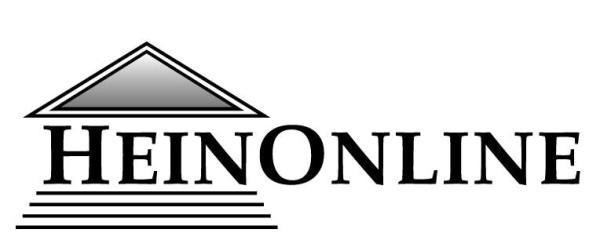ETHICAL AND LEGAL ASPECTS OF PUBLIC RELATIONS
DOI:
https://doi.org/10.5937/ptp2304093VKeywords:
Public relations, ethical codes, ethical principles, court processesAbstract
Public Relations (PR), a significant component of the media industry, also represents a management function that helps establish and maintain beneficial connections between the organization and various stakeholders. The evolution of the public relations profession is commonly perceived as a qualitative shift from the unethical practices that dominated several decades since the 1920s to strategically and ethically conducted campaigns in contemporary business. However, when considering the practice of PR in the first decades of the 21st century, numerous concerns arise regarding ethical dilemmas, conflicts, and, consequently, the ethical decisionmaking process. The main objective of this paper is to offer an overview of ethics and its development in PR. The application of ethical principles based on utilitarian, deontological, situational and virtue approaches is discussed. This study also analyzes the most frequently encountered ethical problems in contemporary PR practice. Finally, the paper delves into some models of the ethical decision-making process and discusses the legal consequences of PR.
References
Berger, B. K., & Reber, B. H. (2006). Gaining influence in public relations: the role of resistence in practice. Mahwah, NJ: Lawrence Erlbaum
Blackk, S. (2003). Public relations. Belgrade: Clio
Borchers, N., & Enke, N. (2022). I’ve never seen a client say: ‘Tell the influencer not to label this is sponsored’: An exploration into influencer industry ethics. Public Relations Review, 48(5), p. 102235
Brautović, H., & Brkan, D. (2009). Public ethics and ethical codes. Medianali, 3(6), pp. 183-194
Cvetković, Lj. V. (2003). Public relations. Leskovac: Technical Faculty in Leskovac
Day, L. A. (2004). Ethics in media – examples and controversies. Belgrade: Media Center and Plus
Dašić D., (2014) Etički aspekti marketing miksa neprofitnih organizacija [Ethical aspects of the marketing mix of non-profit organizations], Poslovna ekonomija, 8(2), pp. 315-330
Dašić, D., Milojević, N., & Pavićević, A. (2020). Ethical aspects of guerrilla and ambush marketing. Ekonomski signali: poslovni magazin, 15(2), pp. 49-69
Filipović, V., & Kostić-Stanković, M. (2014). Public relations. Belgrade: Faculty of Organizational Sciences
Gower, K. K. (2003). Legal and ethical restrictions in public relations. Illinois: Waveland Pr Inc.
Gregory, A. (2009). Ethics and professionalism in public relations. In Tench, R. & Yeomans, L. (eds.) Exploring public relations (pp. 273-292). Harlow: Prentice Hall
Hunt, T., & Grunig, J. E. (1995). Tehnike odnosov z javnostmi. Ljubljana: Državna založbe Slovenij
Jakopović, H. (2013). Public relations ethics in information management. Journal of Education, Culture and Society, 4(1), pp. 20-29
Katlip, S. M., Senter, A. H., & Brum, G. M. (2006). Successful public relations, 9th edition. Belgrade: Official Gazette
Kljajić, V. (2013). Dominance of PR and journalistic content in Serbian print media – causes and consequences. Culture, (139) pp. 13-27
Krstić, A. (2009). Ethics and professionalism in public relations. Marketing, 40(3), pp. 165-184
Kurtić, N. (2009). Ethical relations with the public in the function of social connection and social responsibilities of modern organizations. Medianali, 3(5), pp. 131-142
Laban, V. (2005). The influence of public relations services on (lack of) transparency of sources of information in television journalistic texts. Media research, 11(1), pp. 113-130
Luttrell, R., & Ward, J. (2018). A practical guide to ethics in public relations. Rowman & Littlefiled Publishers
Meiden, D. V. A. (1990). Public Relations. Muiderberg
Milas, D. (2012). Ethical conflicts in public relations. Medianali, 6(11), pp. 51-66
Necić, N. (2021). Ethics in public relations: Ethical theories, codes and conflicts. Media Studies and Applied Ethics, 2(2), pp. 87-100
Pearson, P. J. (2004). Ethics in public relations: A guide to best practice. London and Philadelphia: Kogan Page Limited
Pearson, P. J. (2008). Ethics in public relations. London: Kogan Page
Wilcox, D. L., Cameron, G. T. & Reber, B. H. (2015). Public relations – strategies and tactics, 11th edition. Pearson
Šćekić, P. (2013). Political PR, media and spin doctoring. Culture, (139), pp. 245-252
Terzić, D. (2013). Contribution to the clarification of relations between journalist and PR: On the other side of the barricade. Culture, (139), pp. 285-298
Toledano, M., & Avidar, R. (2016). Public relations, ethics, and social media: A corss-national study of PR practitioners. Public Relations Review, 42(1), pp. 161-169
Verčič, D., Zavrl, F., Rijavec, P., Ognjanov, G., & Brbaklić, A. (2004). Relations with the media. Belgrade: Pristop
Vilkoks, D. L., Kameron, G. T., Olt, F. H., & Ejdži, V.K. (2006). Public Relations: Strategies and Tactics. Belgrade: COD-Faculty of Economics UB
Voza, D., Vuković, M., & Riznić, D. (2009). Ethical aspects in public relations. Marketing, 40(4), pp. 233-240
Ward, J., Luttrell, R., & Wallace, A. (2020). PR ethics literacy: Identifying moral and ethical values through purposeful ethical education. Journal of Public Relations Education, 6(3), pp. 66-80
Wood, E., & Somerville, I. (2008). Business ethics, public relations and corporate social responsibility. In Theaker, A. (ed.) The public relations handbook, (pp. 143-160). New York: Routledge
Downloads
Published
How to Cite
Issue
Section
License
Copyright (c) 2024 Milovan Vuković, Dejan Dašić, Aleksandra Vuković

This work is licensed under a Creative Commons Attribution 4.0 International License.















